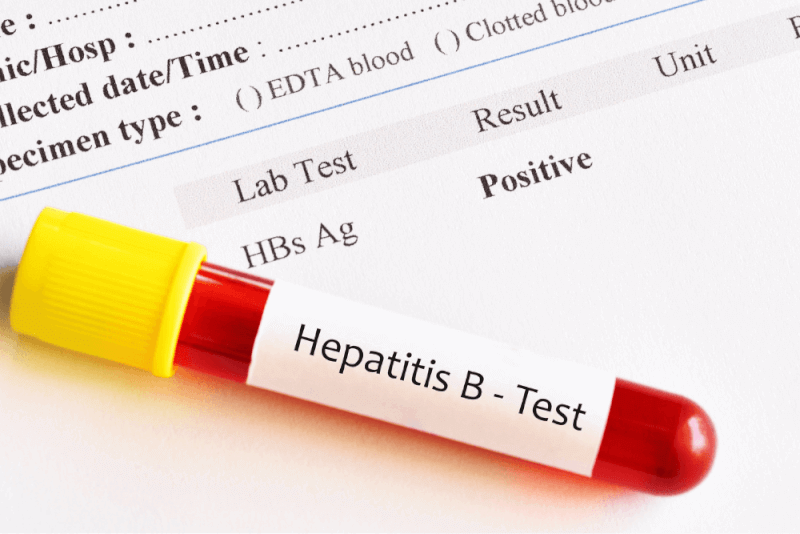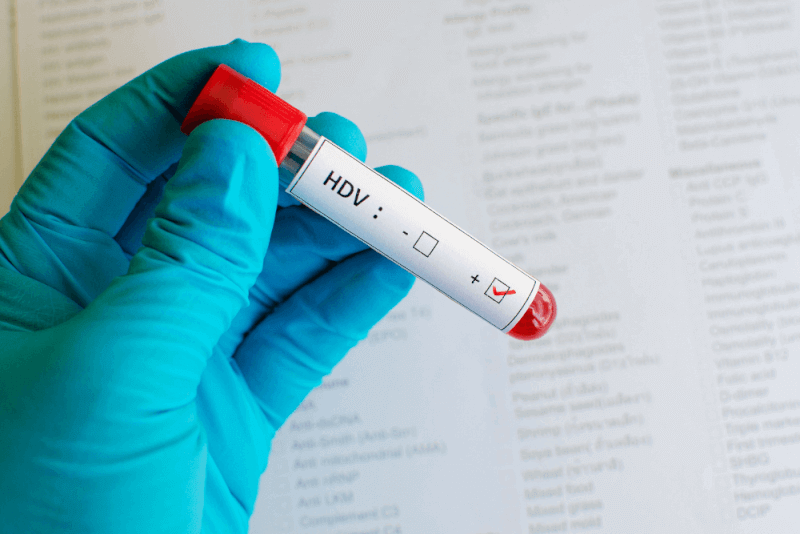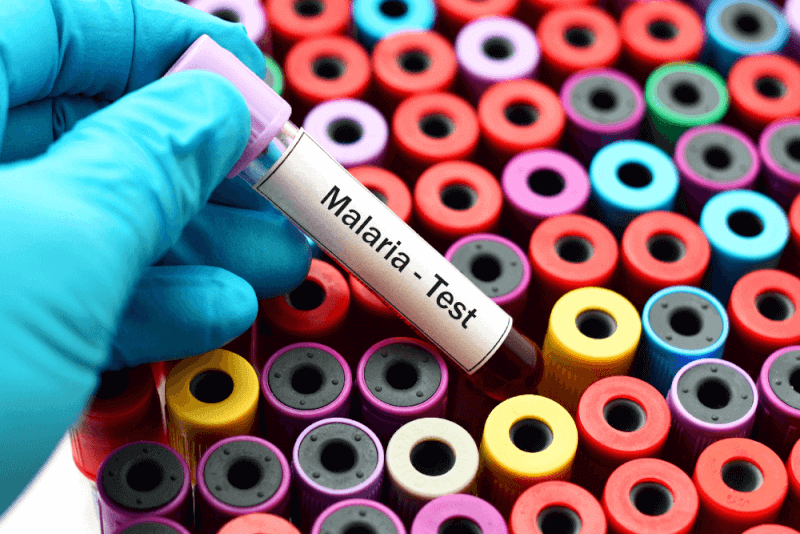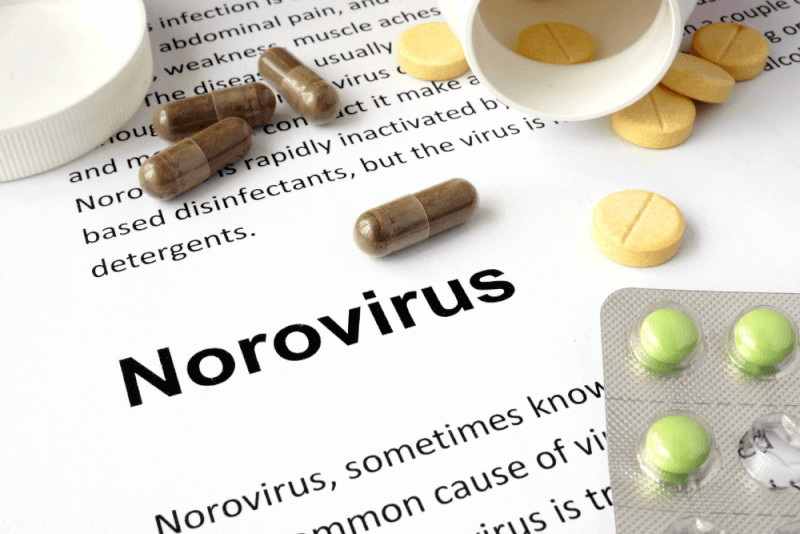Lymph node inflammation, also called adenitis, is generally seen in the groin, armpit and neck lymph nodes. While the majority of cases are caused by pathogens such as viruses and bacteria, it is also one of the symptoms of cancer. For this reason, if there is no shrinkage in the swollen lymph nodes despite antibiotic treatment, the underlying cause should be investigated.
Inflammation of the lymph gland is also called adenolymphitis. The most characteristic symptoms of this disease include swelling, tenderness and warming of the lymph nodes. It can be caused by allergies as well as being caused by pathogens or being one of the symptoms of cancer.
Types of lymph node inflammation
Lymph nodes are an important part of the immune system. Lymph nodes, which are generally involved in blood purification, are numerous and located at various critical points in the body. Lymph nodes can become inflamed for many different reasons, and depending on their location, there are different causes and treatment methods for their inflammation. For this reason, inflammation of the lymph gland is examined under different categories.
Underarm Lymph Gland Inflammation
nflammation of the axillary lymph, also called axillary lymphadenopathy, is not a disease but a symptom of a disease. Sometimes they can become inflamed on their own, but in some cases, lymph nodes in areas such as the groin, neck and chest can also become inflamed.
Armpit symptoms
Inflammation of the axillary lymph nodes is characterized by inflammation and swelling of approximately 40 lymph nodes in the armpit. This swelling can be seen unilaterally or in some cases it can be seen in both axillary lymph nodes. Other symptoms that will be seen in case of inflammation of the underarm lymph nodes are as follows:
- Joint and muscle pain
- Fatigue
- Fire
- Burnout
- Swelling of the adjacent breast or arm
- Burning sensation
- Tingling sensation
- Pain
- Sensitivity
- Temperature
- Redness
- One or more lumps in the armpit
Causes of underarm lymph node inflammation
The lymph system is part of the immune system. Connected to all organs and fluids in the body, this system is responsible for filtering abnormal cells, waste products and pathogens. If anything happens that can cause the immune system to activate, inflammation occurs, which is a natural response. After inflammation occurs, blood vessels dilate so that immune cells can reach the site of infection or injury. In this case, it causes swelling, redness and warmth around the lymph nodes, which is observed locally. For this reason, swelling of the axillary lymph nodes is an indication that something harmful has been trapped that the immune system is trying to eliminate. There are two main groups of benign and malignant causes of swollen axillary lymph nodes.
The most common cause of inflammation of the underarm lymph nodes is infection. Infections are divided into three categories:
- Local infections in the arm, chest or skin,
- Regional infections affecting both the neck and axillary lymph
- Systemic infections such as HIV and mononucleosis, which can cause inflammation of the lymph in many parts of the body
Another factor that causes inflammation of the axillary lymph nodes is granulomatous diseases. These diseases, of which sarcoidosis and tuberculosis are examples, cause the production of clusters of inflammatory cells. In addition, in autoimmune diseases, inflammation of the lymph nodes is possible due to the immune cells of the patients attacking healthy cells.
In some cases, the lymphatic system can also react to medicines. Especially after vaccination, inflammation of the axillary lymph nodes is among the expected conditions. This is because the immune system responds to the vaccine. For this reason, patients should not be vaccinated before mammography screening. Otherwise, swollen lymph nodes can mislead specialists.
In addition, inflammation of the axillary lymph nodes can also be malignant. The causes of malignant conditions are as follows:
- Local progression of breast cancer
- Lymphoma affecting the lymphatic system
- Leukemia
- Metastatic cancers
Neck lymph node inflammation
Approximately one third of the lymph nodes in the body are located in the neck. Lymph glands, which collect nutrients and transmit them to the blood, also play an important role in the immune system.
Neck lymph node symptoms
Inflammation of the neck lymph nodes causes the following symptoms.
- Night sweats
- Fire
- Runny nose
- Mumps
- Sore throat
- Ear infection
- Pain
- Stiffness if caused by a tumor
- Redness and tenderness in the area where the lymph node is located
Causes of neck lymph node inflammation
The most common cause of inflammation of the lymph nodes in the neck is caused by pathogens such as the common cold or flu. Parasites and fungi also cause inflammation of the lymph nodes in the neck. Increased inflammation causes the lymph nodes to swell in greater numbers. Inflammation of the lymph nodes caused by infection is accompanied by pain. Other factors that can cause inflammation of the lymph nodes in the neck include the following:
- Gingivitis
- Mouth sores
- Aphthae
- Toxic substances
- HIV
- Cancers metastasized to lymph nodes
- Connective tissue diseases
- Chronic alcoholism
- Thyroid gland diseases
Inguinal lymph node inflammation
Excessive proliferation of pathogens such as viruses, bacteria or fungi that can cause inflammation in the body causes the lymph nodes to exceed their capacity. This damages the lymph nodes. Enlarged lymph nodes in the groin can cause serious diseases and can also indicate that the body’s immune system is working well. In addition, swollen lymph nodes can also be a sign of inflammation. For this reason, it may be necessary to consult a specialist.
Inguinal lymph node symptoms
A characteristic symptom of inflammation of the inguinal lymph nodes is swelling of the lymph nodes and the formation of red spots in these areas. In addition, the following symptoms of inguinal lymph node inflammation can also be seen.
- If the swelling felt on palpation disappears when pressure is applied, these swellings are congenital hernias.
- Weight loss in a short time
- Night sweats
Causes of inguinal lymph node
The causes of inflammation of the inguinal lymph nodes can be very diverse. Among these, even small wounds on the skin surface cause inflammation of the lymph nodes. In addition, the following are among the factors that cause inflammation of the lymph nodes in the groin area.
- Bacterial, viral and fungal infections
- Diabetes
Inflammation of the chest lymph node
The lymph nodes in the chest area are bean-shaped formations and are located where the lymph vessels terminate. These lymph nodes, which are between the size of a grain of rice and an olive, can become inflamed due to infection or more serious diseases such as cancer.
Causes of chest lymph node
There are several different causes of inflammation of the lymph nodes in the chest. The most important of these is infection. Infections, which are the most common cause of swollen lymph nodes in the breast, are especially common in breastfeeding women. In addition, infections that occur close to the breast tissue also cause swelling of the lymph nodes in the breast.
Another special factor that can cause inflammation of the lymph nodes in the breast is toxoplasma. If toxoplasma parasites are ingested during pregnancy, they enter the bloodstream. Moving with the bloodstream, these parasites pass first to the placenta and then to the baby. This causes the lymph nodes in the chest to swell.
AIDS, one of the diseases that cause the immune system to be affected, causes inflammation of the lymph nodes in the breast. Because in this disease, the lymph nodes work hard to fight the disease and this causes the lymph nodes to swell.
Infectious mononucleosis, an infectious disease, also causes swollen lymph nodes in the chest area. Since it is a saliva-borne disease, the lymph nodes in the throat are primarily affected. Later, the lymph nodes in the chest also become swollen and inflamed.
Another factor that causes inflammation of the chest lymph nodes is lymphoma. This disease, also called lymph cancer, causes tumors to form in the lymph nodes in the chest.
Lymph nodes are one of the elements of the immune system that fight rheumatism most effectively. For this reason, people with rheumatic diseases often have inflammation of the lymph nodes in the chest area.
In addition, certain medications can also cause inflammation of the lymph nodes in the chest. These drug groups include the following.
- Quinidine
- Penicillin
- Cephalospirin
- Captopril
- Beta bloker
- Phenytoin
Abdominal lymph node (what is it?)
A special examination is needed to determine whether the lymph nodes in the abdomen are enlarged. Swelling of the lymph nodes in the abdomen is not a common condition. In case of infection, it is normal for the abdominal lymph nodes to enlarge up to half a centimeter. However, if the lymph nodes are more than 1 centimeter, it is a harbinger of more serious diseases.
Enlarged lymph nodes in the abdomen also mean that the infection has spread to all organs and limbs. Especially if the lymph nodes are above 1.5 centimeters, an urgent diagnosis is required. Because lymph nodes in the abdomen above the specified diameter can cause complications such as cancer, AIDS, tooth decay and upper respiratory failure.
Abdominal lymph node symptoms
In case of inflammation of the abdominal lymph nodes, the symptoms that can be seen in patients are as follows.
- Itching
- Extreme fatigue
- Slimming
- Loss of appetite
- Night sweats
- High and prolonged fever
Causes of abdominal lymph node
Inflammation of the abdominal lymph nodes is usually caused by pathogens. For this reason, antibiotic treatment is recommended first. In addition, inflammation of the lymph nodes can also be caused by malignant tumors such as cancer.
Diagnostic methods for lymph node inflammation
A physical examination is sufficient to detect inflammation in the lymph nodes. However, the factor causing inflammation of the lymph nodes must be identified. Patients are asked to undergo different diagnostic tests to determine the cause. The most commonly used of these diagnostic tests are the following.
CRP
A high C- active protein ratio indicates that there is an infection in the body. For this reason, CRP values, which can detect generalized inflammation in the blood test, are first checked.
ESR
Another blood test used to detect generalized infection in the body is ESR. ESR stands for erythrocyte sedimentation rate.
WBC
Another blood test that can detect infection in the body is the WBC test, which counts the number of white blood cells in the blood. This allows the lymphocyte count to be determined.
Imaging methods
Imaging methods are also used to visualize the lymph nodes. These methods include computed tomography, X-ray and ultrasound.
Lymph node biopsy
Finally, a lymph node biopsy can also be performed to determine the exact cause of the inflammation of the lymph nodes. In this test, a tissue sample is taken from the lymph node and examined by experts.
In addition, swelling, especially in the armpit, may not always be related to the lymphatic system. This requires a differential diagnosis. In order to differentiate these conditions, a type of biopsy technique called fine needle aspiration and imaging methods are used.
Treatment of lymph node inflammation
In order to treat inflammation of the lymph glands, the root disease that causes this inflammation must be treated. In addition, local lymph enlargements show a better recovery course than lymph enlargements seen throughout the body.
If the inflammation of the lymph nodes is caused by an infection, antibiotics may be prescribed. In addition, hot compresses can also be used to relieve the pain in the area. In addition, resting and using painkillers prescribed by the doctor will also help relieve the pain. If the disease is of viral origin, antibiotic treatment is not applied. This is because the lymph nodes return to their normal size after recovery from the viral illness.
If the cause of inflammation of the lymph nodes is medication, then alternative treatment methods or medications should be used. For this, physicians can make the problem disappear by re-planning treatment.
In the treatment of lymph node inflammation caused by autoimmune diseases, the underlying autoimmune disease must be controlled. In addition, if the cause of lymph inflammation is cancer, then surgical methods will also be part of the treatment.














K** G** | 21 Feb 2025